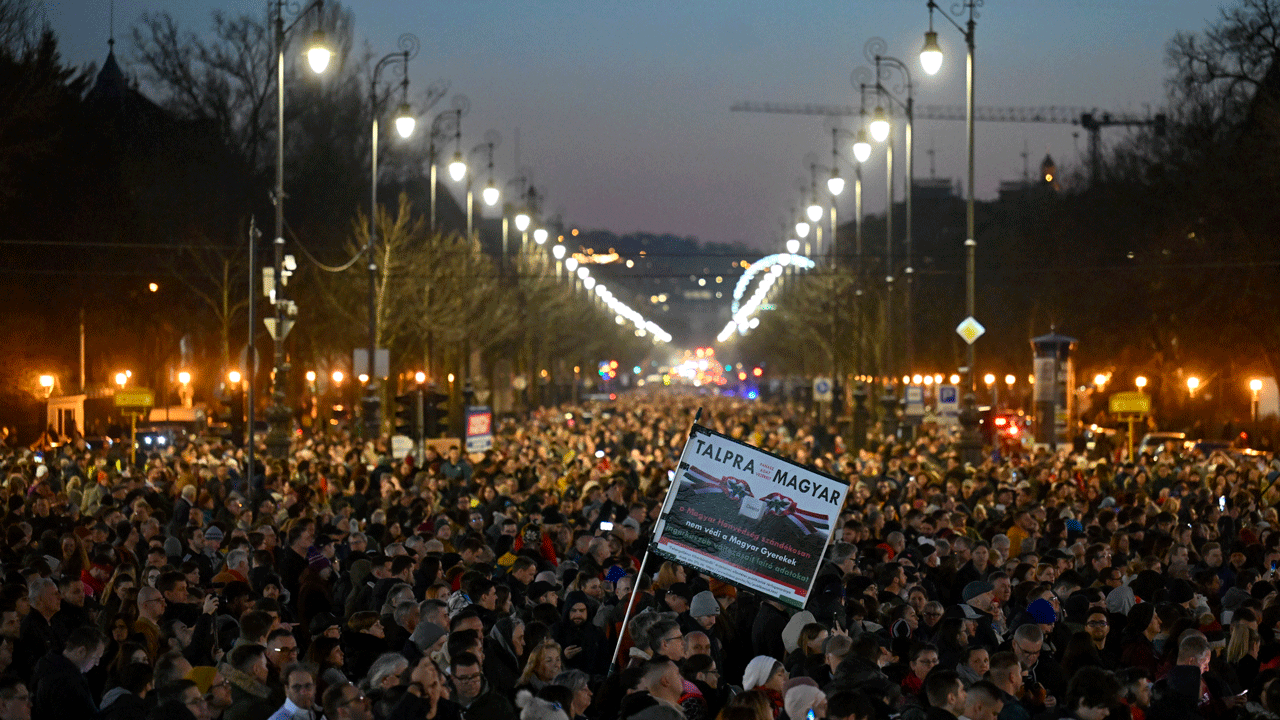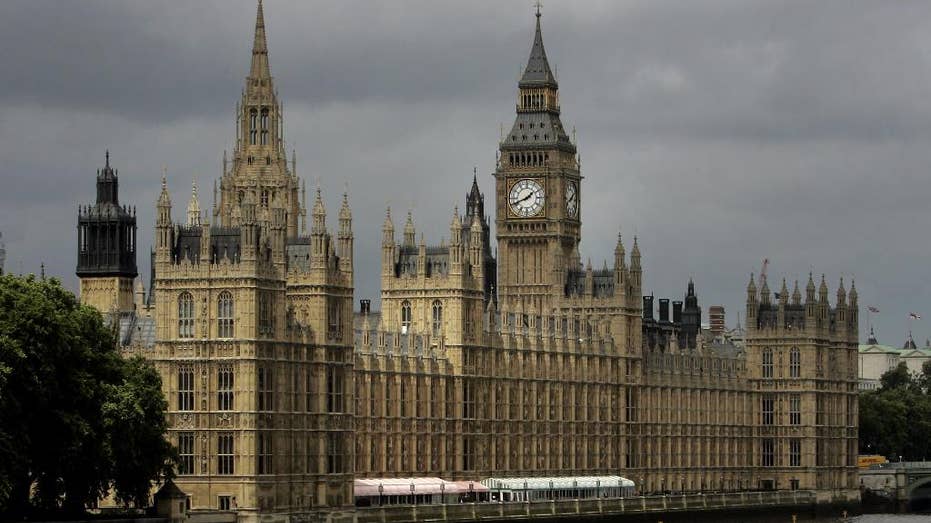Online influencers lead thousands demanding change in Hungary following president's resignation
Following the scandalous resignation of Hungary's president, online influencers have spearheaded a Budapest protest movement to call for political change.

BUDAPEST, Hungary (AP) — Some of Hungary's best-known online personalities led a crowd of at least 10,000 protesters in Budapest on Friday to demand a change in the country's political culture, a response to the conservative president's recent resignation over a pardon she issued in a child sexual abuse case.
Demonstrators filled the Hungarian capital's sprawling Heroes' Square and called for genuine reforms to Hungary's child protection system and for a transformation in Prime Minister Viktor Orbán's system of governance.
HUNGARY’S PRESIDENT RESIGNS AFTER BACKLASH FOR PARDON IN CHILD SEX ABUSE CASE
"I don't know exactly what we're going to achieve at the end of the day," said Zsolt Osváth, a popular online content creator who helped organize the demonstration. "But it's certain that we won't stay silent any longer, and that we had to step out from the comfort zone of our computer screens."
The protest came amid an unprecedented political scandal that has shaken the government of the prime minister, a staunch nationalist who has dominated Hungary's public life since 2010.
President Katalin Novák, an Orbán ally, resigned amid controversy last week after it was revealed that she issued a presidential pardon to a man that had been imprisoned for covering up a string of child sexual abuses by the director of a state-run orphanage.
The pardon shocked Hungarian society and opened fissures within Orbán's Fidesz party, which has governed the country with a constitutional majority for nearly 14 years.
Friday’s expression of popular discontent took root among a segment of society that is often disengaged from politics. The demonstration's organizers included nearly a dozen popular YouTubers and other content creators, who wrote that they were "distraught" over the revelations and protesting for a "healthy society."
The organizers, each of whom has hundreds of thousands of subscribers on YouTube, urged their fellow Hungarians to break out of political "apathy" but asked opposition political parties not to display party insignia at the protest.
Bulcsú Hunyadi, an analyst with the Budapest-based think tank Political Capital, said influencers taking the lead gave the event greater resonance than calls to action by Hungary's fragmented political opposition.
"The people who are organizing this demonstration reach certain groups of society in large proportions. Their voices go far and wide," Hunyadi said. "This demonstration can reach a different group than those organized by the traditional political parties, and can presumably reach a wider audience."
Also implicated in the scandal was former Justice Minister Judit Varga, another key Fidesz figure who resigned her parliamentary seat over her role in endorsing the pardon.
Varga was expected to lead the list of candidates from Fidesz when European Parliament elections are held in June. The loss of two of Hungary's leading female politicians from the male-dominated government came as a blow to Orbán as his party prepares for the European Union balloting.
Gábor Balk, a protester and father of three, said he is not convinced the scandal will mark a turning point in Hungarian politics.
"I don’t expect anything from this government. They aren’t going to change anything," Balk said. "They threw away two people, they can go, but there will just be two other cadres in their place."
Even with Novák and Varga’s resignations, the pardon scandal has spread to implicate others in Orbán’s circle and sparked outrage over unanswered questions on why the pardon was issued.
Zoltán Balog, one of Orbán's former ministers and the head of Hungary's reformed church, stepped down from his role Friday after he admitted to having advised Novák to issue the pardon.
Varga's ex-husband, Péter Magyar, made public accusations of corruption and intimidation against Orbán's government in an interview on popular YouTube channel Partizán, which has garnered more than 2 million views in the country of fewer than 10 million.
Hunyadi, the analyst, said such public outcry among a wide spectrum of Hungarian society could mobilize further opposition to Orbán's power.
"What works against apathy now is that people simply feel that this is a serious matter that can and has had consequences — the two resignations," he said. "Now they feel that there’s a reason to do something, that they can achieve something by taking action."
What's Your Reaction?
















